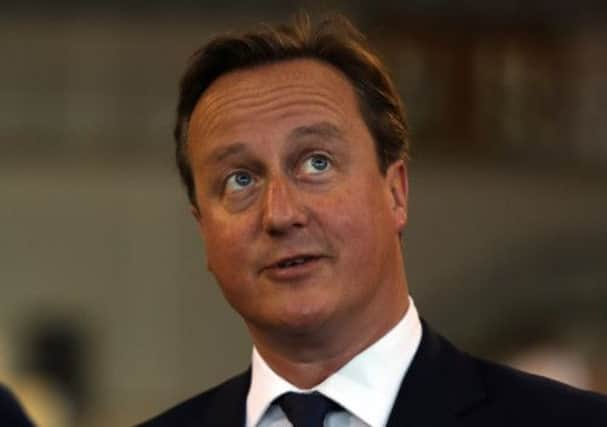Scott Macnab: Holding the reins of power


The Prime Minister made a fleeting visit to Glasgow this week to see the Commonwealth Games venue, but as usual he refused to face the Scottish press corps. His minders ensured the operation was rigidly policed. only a select few handpicked media representatives were invited along to report the tory leader’s utterances in a heavily controlled regime.
The episode underlined the caution with which the No side in the referendum campaign is using Mr Cameron. It’s the big issue he’ll be asked about, but the affection he engenders in the home counties is not replicated north of the Border. He can’t help his roots, of course, but a Tory leader from a background of Etonian privilege is seen as a liability to the No campaign. With Downing Street strategists apparently believing the referendum is in the bag, the Tory leader’s near invisiblity in Scotland is almost assured for the year ahead.
Advertisement
Hide AdAdvertisement
Hide AdBut while he appears to know his place in Scotland – firmly in the background – it’s been suggested this week that the Yes side still isn’t sure how best to use its kingpin, First Minister Alex Salmond. Perhaps his interventions should be targeted in a more strategic manner. Is it possible to rein in his appearances when he’s got to govern Scotland, face opposition leaders at First Minister’s Questions every week where this issue dominates? Would they want to rein him? The SNP regime has used its monopoly on power to dominate the political agenda. It’s worth remembering that Mr Salmond’s popularity remains remarkably high after six years in government.
His rivals would die for his poll figures. but they are not being converted into support for independence, with the latest polls suggested the Yes side needs 75 per cent of undecided voters to edge in front. The prospect of a “game changing” event like another economic collapse or fresh masses of North Sea oil being discovered seems fanciful. So how does the Yes side turn things around?
Pollsters Ipsos Mori revealed this week support for independence is strongest in poorer areas among people who have less to lose. A more radical approach could be adopted in reaching out to them, instead of the lifeless, “robotic” campaign we’ve seen so far, says former SNP leader Gordon Wilson.
He warns that Scottish identity and national pride has all but disappeared from the debate and it’s time to stir up a bit of passion. The prospect of Mr Salmond appearing at FMQs clad in tartan and waving a claymore is unlikely. But you have to think that the volley of arguments and statistics about the economics, oil prices, currency and pensions are only confusing most Scots and benefiting the No side. The blunt truth is there will never be definitive answers on these issues. It’s not a referendum on these – it’s about where power lies; a simple choice: Edinburgh or London?